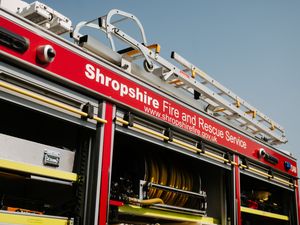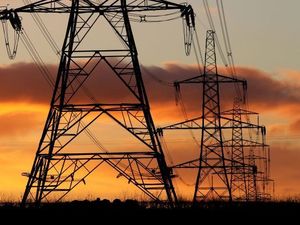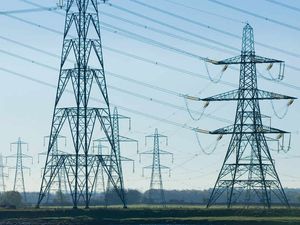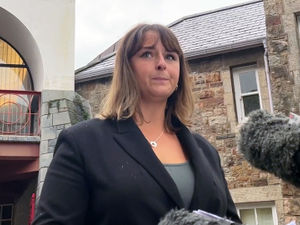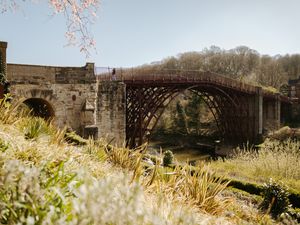Shropshire weather: Snow is on the way – but things could be worse!
Snow is set to make its first appearance of the year in Shropshire – but it won't be as cold as this.
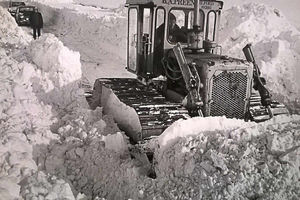
Exactly 35 years ago today, our county made the record books when the mercury dropped to -26.1C. That temperature, which equates to -15F, was the lowest England had ever seen and put the weather station at Harper Adams University, near Newport, on the map.
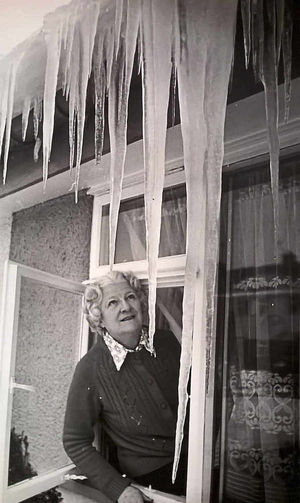
The winter brought snow several feet deep and icicles that stretched to the floor and it lasted for weeks. It also created drama as people became stuck in snowdrifts and tragedy as others succumbed to the cold.
Today forecasters predicted snow for parts of the region as Arctic air comes in to the region ready for the weekend.
Steven Keates, from the Met Office, said: "On Thursday showers spread further south and east. It is going to turn much chillier, particularly through Thursday and Friday. Some areas could see snow, and some pretty significant snow."
Temperatures, however, will be positively balmy compared to 1982, dropping to a low of -2C (28F).
People talk about the cold winters of 1947 and 1963, but it was January 10, 1982, that broke all the records.
Feeling the cold? Found your commute a bit of a pain over the past few days? Well spare a thought for coach driver Tom Reynolds.
His journey home, from the coach depot in Cardington to the nearby village of Kenley, normally took him about 15 minutes. But on one particularly cold day 35 years ago, it took him 15 hours.
Send us your winter weather photos for a chance to win £100
It is exactly 35 years today since Shropshire weatherman Bill Burrell recorded the lowest ever temperature recorded in England, when the mercury plunged to -26.1C (-15F).
Mr Burrell, who was at the time working as a researcher at what is now Harper Adams University, remembered the day he took the reading: "Halfway down I could feel the ice forming on my nose.
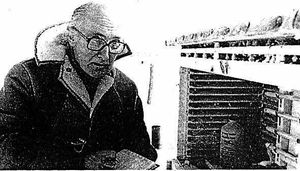
"My eyelashes were sticking together and I felt like my nose was going to fall off. It hurt to breathe."
Mr Burrell, who died in 2015 aged 90, said that the college's location made it susceptible to extreme weather.
"It's rural and quite exposed but Harper Adams is in a frost hollow," he said in a 2010 interview. "This is where the coldest air sinks."
Fellow weatherman John Warner, from Lilleshall, recalls a period of prolonged cold weather in the run-up to the record-breaking week.
"The cold, hard frosts had been with us for five or six weeks, before," he says. "At that time, Shawbury was supposed to be one of the coldest places in England, the temperatures were always coldest in Shropshire, but you don't get that any more. Nowadays the coldest temperatures tend to be recorded in Oxfordshire."
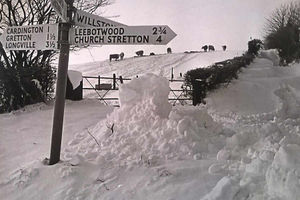
The temperature in Shropshire was actually colder than that of the South Pole, and the week of the big freeze saw the Shropshire Star filled with photographs of people battling with the elements as they tried to go about their business.
A woman in Oswestry was pictured with 4ft icicles hanging from the eaves of her home.
In Hales, near Market Drayton, the Rev Brian Morris was so determined not to let a couple down who were due to get married at the village church that he borrowed a farmer's tractor. He had asked the farmer for a lift from his vicarage in Cheswardine, but the farmer had been unable to negotiate the snow-covered lanes, leaving the vicar to drive the tractor himself.
Even the fire crews were defeated as they answered an emergency call to the remote village of Nash, near Clee Hill. Five firemen were trapped for nearly eight hours in the cab of their tender after attending a call to Nash Court School just after 2pm. Fireman Graham Bradley, of Ludlow fire station, said at the time: "We got up to the Clee Hill all right, and towards Nash a snow plough had been along. But as we went further on, the plough had come to a stop and there were 10ft drifts ahead."
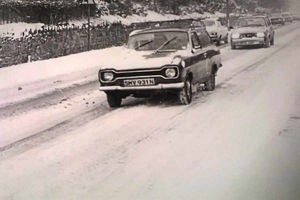
The crew walked the remaining three-quarters of a mile to the school, and found it had been a false alarm.
But when they returned to their fire engine, the snow had drifted behind them, blocking the road in both directions.
"We stopped in the cab until 9pm or 10pm, and even with the engine running and the heater going it was freezing."
Deciding there was no prospect of returning to Ludlow, they got out of the cab and made their way in waist-deep snow back to the school, where they took refuge for the night.
There was also a tragedy as a 73-year-old farmer from Clee Hill died as he braved the weather to feed his animals.
The farmer, described as "a burly six-footer" had defied relatives' advice not to make the journey, and ventured out into the blizzards and 5ft snowdrifts wearing two pairs of trousers and two coats. He died from a suspected heart attack only yards from his smallholding at Titterstone, near Ludlow.
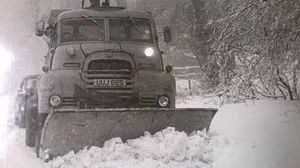
Five miles away in Clee Downton, an Army helicopter was drafted in to airlift food, water and fuel to an elderly couple who had been stranded at their remote farm for three days.
John Southall, 73, and his wife Maisie, had only half a loaf of bread left, no coal and no water when the mercy mission reached them. Shortly afterwards the power supplies failed, too, leaving them with candlelight only.
Mr Southall said his telephone had been his only link with the outside world.
"I was frightened the phone might go off at any minute," he said.
"I thought the time had come to ring Ludlow police and ask for help. We could have died here if the phone had not been working."
Inspector Terry Stubbs, of Ludlow police station, said an MEB crew with a four-wheel drive vehicle had tried to reach the stranded couple, but were unable to get near the farm.
"We called in the Army from Hereford with a helicopter and they were able to drop food, water and coal."
Mr Southall praised the efforts of the emergency services for their help.
"They were absolutely marvellous," he said. "Things were getting pretty tough here for both of us."
However, unlike the winters of 1947 and 1963, when the freezing conditions continued until March, the cold snap of 1982 was shortlived. Within a week the Big Freeze had become the Big Thaw, with flooding being the big concern.
Mr Warner says the extreme winters are usually caused by a "perfect storm" when different factors come together. "Heavy snowfall in the weeks before, underlying sandy soil always produces cold temperatures, and then you have the winds that blow downhill," he says.
The thin cloud cover was also a major factor in the cold temperatures of January 1982, and it is this which has been cited as one of the causes of the frosty weather we have had over the past few days. However Mr Warner says it is foolish to compare the brief cold-snap we have just endured with the Antarctic temperatures of 35 years ago.
"We have had cold winters since, it was cold everywhere in December 2010, when there was frost for a whole month, but we have not seen anything like January 1982," he says. "You can usually tell a few weeks before, but there is no sign of anything like that at the moment."

